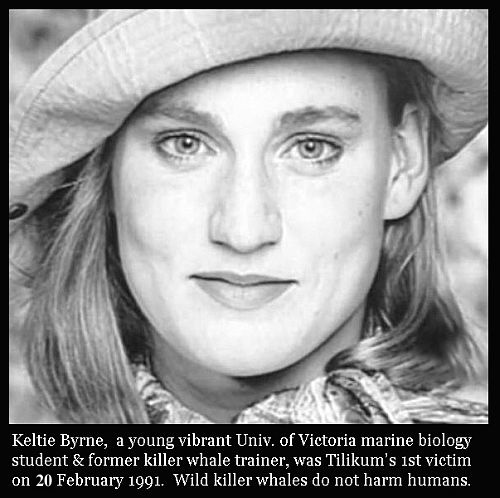No matter which side of the captivity debate you're on, one thing that can be said regarding anyone that has trained marine mammals is that they did it for the opportunity to be close to animals that they loved; despite the low wages and the sometimes alarming consequences for the animals in their care. Most current and former trainers have multiple pets at home, and in general, appreciate nature.
>> click on images to enlarge <<
As former workers in the captivity industry, we've changed our ways and come to appreciate the marine mammals that we worked with even more, not less. This was amplified, for us, after visiting cetaceans in the Pacific Northwest, swimming in straight lines, jumping out of the water, and with erect dorsal fins. These incredible marine mammals have demonstrated, to us, self-awareness, tool use, language, culture, and family bonds that are stronger than even humans. We feel they've earned "non-human personhood status."
Thus, despite our longing to be with them, we now know that it's not in their best interest to be in captivity; housed in concrete pools, surrounded by human noises including amplified music, air-powered pneumatic gates, and sometimes heavy equipment such as jack-hammering and drilling. We know that killer whales die young in captivity, experience social strife, dehydration, and deconditioning. Beluga whales & false killer whales don't do any better.
We see the perpetuation of cetacean captivity as inhumane, unnecessary, and morally wrong; and costly to BOTH whales and humans. Let's do the right thing, save lives, and show our humanity.
We'll miss the loving souls depicted in these images. They were dedicated, charismatic, and amazing individuals. Let's not lose any more to the archaic practice of marine mammal confinement.



